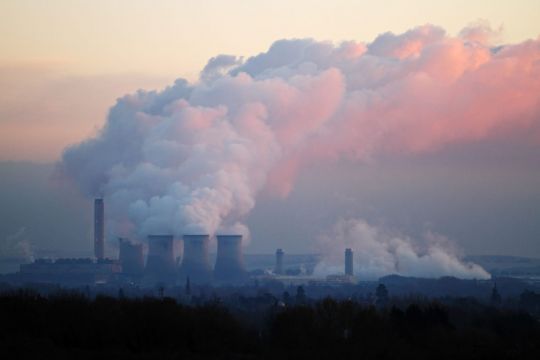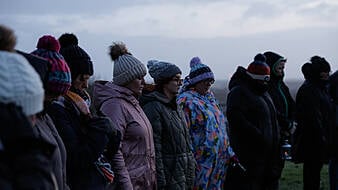A major UN report has painted a bleak portrait of what could await the world if effective steps are not taken to combat climate change. Put together by the IPCC (Intergovernmental Panel on Climate Change), they found it’s “unequivocal” that humans are driving climate change, and that global temperature rises would likely top 1.5 degrees over the next two decades.
234 authors from 66 countries that worked on #IPCC’s latest #ClimateReport have made history today. The Working Group I contribution to IPCC’s Sixth Assessment was approved in IPCC’s first ever virtual approval session.
Thank you to all involved that made this happen. https://t.co/JhfBVi7bRb— IPCC (@IPCC_CH) August 6, 2021
The results vary from extreme weather patterns to rising sea levels, which are already becoming increasingly evident in many parts of the world. And while the weight of responsibility fundamentally sits on governments and multinationals, there are still plenty of things ordinary people can do to try and combat the climate crisis.
Here are just a few of them…
1. Reduce car usage
In 2020, a wide-ranging report put car-free living at number one on it’s list of most impactful changes within reach for ordinary people. Binning off your car altogether is obviously the dream, but using it less might be a more realistic goal. Cycling to work helps both the planet and your cholesterol, while public transport and ride-sharing services are far preferable to private car journeys. Switching to electric or hybrid vehicles is also an obvious win, although their impact isn’t reduced to zero.
2. Take fewer flights
One single long haul flight can generate more emissions than the average citizen produces in a year, in several countries, so yes – it’s a biggie. Quality is just as important as quantity, and sticking to short haul is a really good start. Instead of sitting by a beach in Bali, sample the sea off Sicily, or trade Machu Picchu for the Alhambra. If and when you do fly long distance, choose nonstop flights where possible, and consider carbon offsetting.
3. Eat more vegan food
You probably already have an opinion on veganism, but there’s good cause to embrace green eating without even touching on the cultural or ethical aspects. A 2017 study found that red meat can have up to 100 times the environmental impact of plant-based alternatives, thanks to methane emissions and the heavy demands of livestock farming.
Again, you don’t have to live in a cave subsisting off dried grass. Vegetarian and pescatarian diets also tend to be better than going full carnivore, or you could simply eat meat a little less often. Consider starting small with Meatless Mondays, or swapping out a certain number of meals a week.
Science has long warned us that we need to limit temperature rise to 1.5°C degrees.
Moving beyond that, even if just marginally, could risk calamity for humanity.
Limiting temperature rise is still possible - and crucial - but only through bold and concrete #ClimateAction. pic.twitter.com/wlWTjMzssp— António Guterres (@antonioguterres) July 28, 2021
4. Avoid fast fashion
Waste is bad for carbon emissions pretty much wherever it resides, and few industries are more wasteful than fast fashion. According to the World Resources Institute around 20 items of clothing are manufactured per person per year. A lot of clothes are produced unsustainably, so consider buying vintage, looking for the Fairtrade logo, or best of all, wearing what you’ve already got.
Clothes are among the most overbought commodities on the market, but the principle holds across the board. Don’t buy loads of stuff you don’t need.
5. Make your home energy efficient
Insulating your walls and roof takes the pressure of your heating system, aiding both the planet and your wallet, and may even be DIY-able for confident homeowners. A smart thermostat can provide similar services, ensuring your heating is only working when you’re present and awake, while incandescent light bulbs should be traded in for energy-efficient alternatives.

Draught proof your doors and windows, and explore insulating your boiler. Installing a low-flow shower head will help save on water, while dripping taps should be fixed as soon as possible. And yes, of course you should turn the lights off when leaving a room. It all adds up.
6. Have one fewer children
OK, so we’re really stretching the phrase ‘simple ways’ here, but a 2017 study found that the single largest impact individuals could have on their carbon emissions was – by a large margin – to reproduce less. More humans equals more consumption, and consumption drives environmental damage like almost nothing else.







